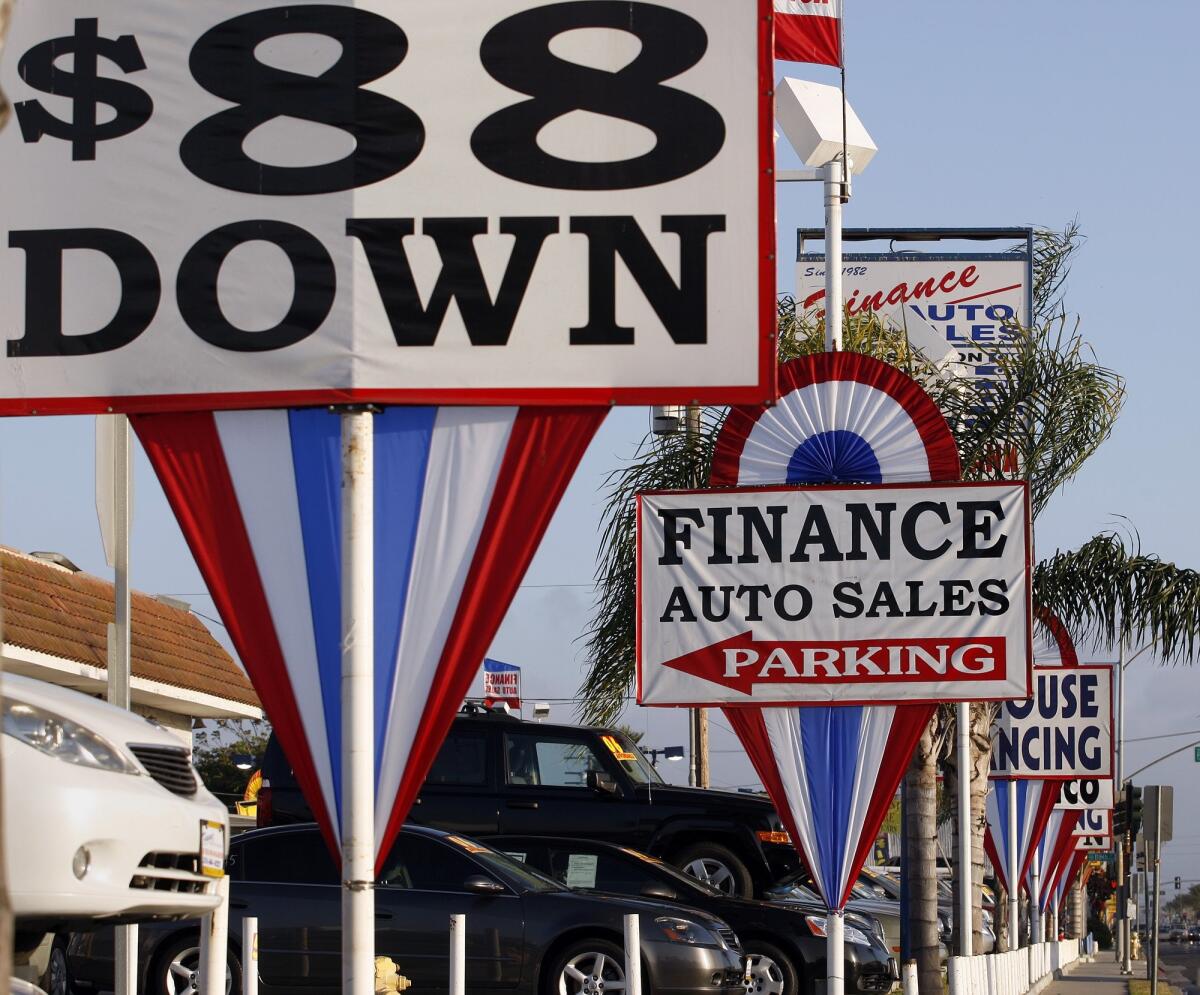Automakers sow doubts about the future as they slather on sales incentives

Carmakers likely extended a streak of strong U.S. sales by slathering on the incentives and pumping up deliveries to fleet customers in 2019, calling into question whether the companies can maintain momentum into the new decade.
While industrywide deliveries are expected to exceed 17 million for an unprecedented fifth consecutive year, sales slowed in the final months of 2019. General Motors Co. and Fiat Chrysler Automobiles reported fourth-quarter sales declines that were largely in line with analyst estimates, while Toyota Motor Corp. and Honda Motor Co. posted surprise December decreases.
The good run automakers have been on the last few years is also less impressive beneath the surface. While the number of new vehicles consumers are buying at retail peaked years ago, manufacturers have propped up sales by selling to rental car companies. Market researcher J.D. Power estimates carmakers spent about $4,600 on incentives per vehicle in the last month of the year, a record.
GM, Fiat Chrysler and Ford Motor Co. shares fell by more than benchmark indexes after a gauge of U.S. manufacturing activity unexpectedly dropped to the worst reading since June 2009. All three stocks trailed the S&P 500 in 2019.
Ford’s December sales dropped 1.5% in December, RBC Capital Markets analyst Joe Spak wrote in a report late Friday, citing researcher Autodata and RBC’s own estimates. The automaker has scheduled the public release of its fourth-quarter and full-year results for Jan. 6.
Nissan Motor Co. reported the biggest decline among major automakers, limping over the finish line last year with an almost 30% plunge in December sales. In its first full year without longtime leader Carlos Ghosn, deliveries dropped 9.9%.
Tesla, meanwhile, reported strong growth in deliveries for the fourth quarter and saw its stock price soar.
For 2020, RBC’s Spak estimates that U.S. sales will drop to 16.4 million. Others are less pessimistic, with car-shopping researcher Edmunds predicting another year north of 17 million.
A softening economy probably won’t be to blame if total U.S. sales dip below that threshold this year, says Jeff Schuster, senior vice president of forecasting for researcher LMC Automotive. Instead, he points to sticker shock for buyers on a budget.
“We’re expecting a decline to 16.8 million for 2020 because transaction prices are continuing to rise,” Schuster said. “The affordability problem is affecting those first-time and entry-level buyers, pushing them to the used car market. It’s not a massive exodus from new car sales, but that adds additional pressure to that 17-million level, and that’s why we’ll see a dip.”
More to Read
Inside the business of entertainment
The Wide Shot brings you news, analysis and insights on everything from streaming wars to production — and what it all means for the future.
You may occasionally receive promotional content from the Los Angeles Times.










